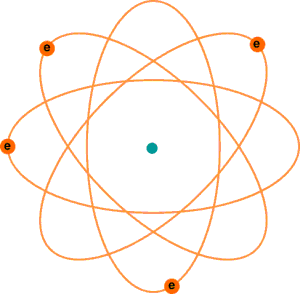The experiment, which spanned more than a decade, suggests that the electron differs from being perfectly round by less than 0.000000000000000000000000001 cm. This means that if the electron was magnified to the size of the solar system, it would still appear spherical to within the width of a human hair.
The physicists from Imperial's Centre for Cold Matter studied the electrons inside molecules called Ytterbium Fluoride. Using a very precise laser, they made careful measurements of the motion of these electrons. If the electrons were not perfectly round then, like an unbalanced spinning-top, their motion would exhibit a distinctive wobble, distorting the overall shape of the molecule. The researchers saw no sign of such a wobble.
According to the article, the purpose of this recent research is to understand anti-matter which was theorized by scientists to have been created in the same quantity as normal matter after the Big Bang but for some reason is only found in very tiny traces. If the electrons were found to be not as round as expected then scientists hoped that that would explain the lack of anti-matter in the visible solar system.
In another article (posted in 2008) that gives a better background on the relationship between electrons and anti-matter, it explains that "electrons encountering positrons (their antimatter equivalent) annihilate each other, with their mass converted into high energy gamma rays." Furthermore, the largest collection of anti-matter is a cloud near the galactic center.
Now what I'm not understanding is; in a universe made up primarily of matter, how can even the smallest cloud of anti-matter exist? Surely it's gradually being destroyed by border contact with the surrounding matter which exists in greater number? Unless there is a vacuum border between the two that stops contact? And if it existed in equal quantities after the Big Bang (as being theorized), why are the resultant quantities today of the two matters so different?

No comments:
Post a Comment